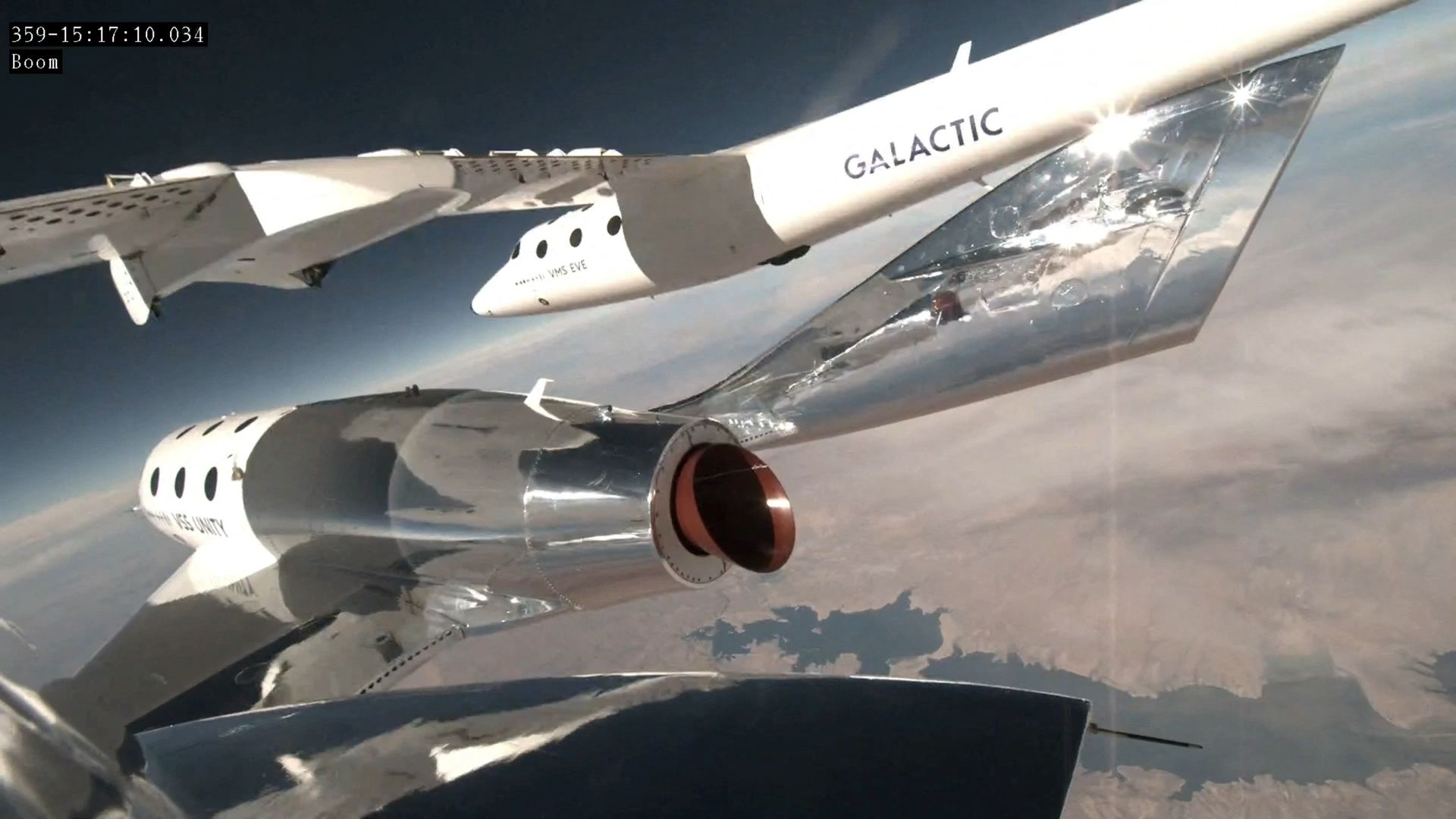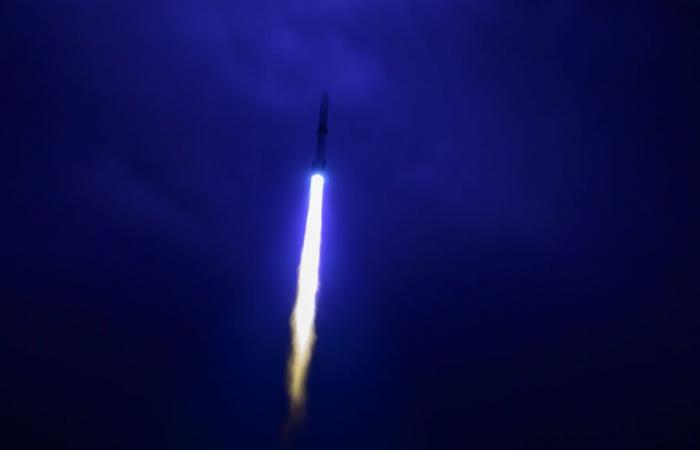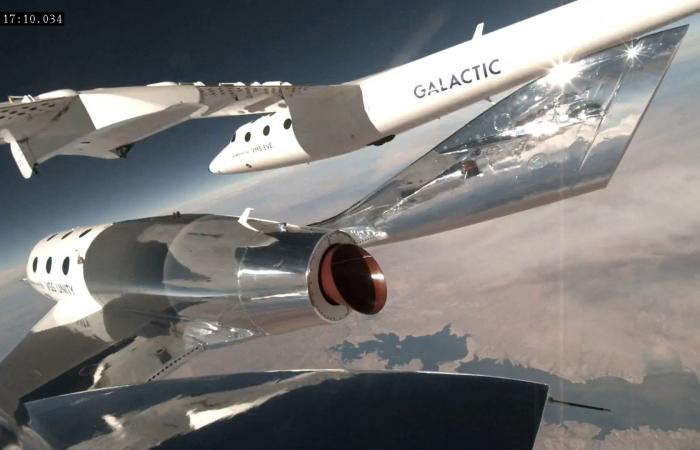Jeff Bezos’ New Glenn rocket took off on January 16, 2025. / Belga Image
The American space company Blue Origin, founded by billionaire Jeff Bezos, carried out the very first launch of its large New Glenn rocket on Thursday, a maiden flight eagerly awaited for years, according to a video broadcast. Many years after Neil Armstrong, the first man to walk on the Moon in 1969 (unofficially, it is Tintin), marking a victory for the United States over the USSR in the war for space conquest. This “small step for man” was in reality a “great leap for humanity”, in a context of intense ideological and technological rivalry between the two powers of the Cold War. Nowadays, the conquest of space is no longer solely the domain of States. It has passed into the hands of private entrepreneurs like Elon Musk (SpaceX), Jeff Bezos (Blue Origin) and Richard Branson (Virgin Galactic). These billionaires compete in daring to develop new space technologies and open the doors to the cosmos, sometimes with a view to tourism, sometimes with much greater ambitions.
A universal dream
The history of the conquest of space is not new. Since Antiquity, human beings have sought to understand how the world around them works. With technological advances, this dream of reaching the stars takes on a whole new dimension, particularly in the tense context of the Cold War between the United States and the USSR. Access to space then becomes both a strategic and ideological issue.
Until 1965, the Soviet Union dominated this space race against its American rival. It marks decisive steps by sending the first artificial satellite, Sputnik Iin 1957, followed by the first man in space, Yuri Gagarin, in 1961.
Little by little, however, NASA, founded in 1958, is catching up. By relying on American cutting-edge industry, it is methodically carrying out several programs to prepare for a manned flight to the Moon. These initiatives are part of the challenge launched by President John F. Kennedy in 1961: send an American to the Earth’s natural satellite and bring him back alive before the end of the decade.
The Apollo program benefits from the spectacular growth of technologies resulting from the Third Industrial Revolution, such as electronics, computing and telecommunications. This feat, which came to fruition with Neil Armstrong’s first step on the Moon, remains one of the greatest achievements in the history of humanity.
New space powers
Today, other nations are joining the dance. China, under the leadership of Xi Jinping, is developing its Tiangong space station and is aiming for a human return to the Moon by 2029. India, for its part, is asserting itself as an emerging power with missions like the Martian orbiter Mangalyaan (2014) and ambitious lunar projects.
Billionaires: dreamers or businessmen?

Jeff Bezos, Elon Musk and Richard Branson, often referred to as the new space adventurers, pursue varied objectives. SpaceX carries out regular missions for NASA, while Blue Origin and Virgin Galactic focus on suborbital flights.
But these projects are not purely altruistic. The economic benefits are significant: Virgin Galactic has already sold nearly 600 tickets for space flights, at prices ranging from $200,000 to $250,000. In the United States, legislation passed in 2015 under Barack Obama helped accelerate the privatization of space exploration.
Beyond profits, space represents a challenge for these billionaires, a new frontier to conquer. Some, like Elon Musk, see it as a solution to ensure the survival of humanity. Musk envisions a self-sustaining human colony on Mars by 2025, while Jeff Bezos dreams of a solar system housing a trillion humans.
A mixture of ego, dream and necessity

The conquest of space, once dominated by strategic and geopolitical issues, is today driven by a mixture of personal ambitions, economic challenges and a desire to push the limits of humanity. Space remains an inexhaustible source of fascination and a promise of endless adventures.









